Click here and press the right key for the next slide.
(This may not work on mobile or ipad. You can try using chrome or firefox, but even that may fail. Sorry.)
also ...
Press the left key to go backwards (or swipe right)
Press n to toggle whether notes are shown (or add '?notes' to the url before the #)
Press m or double tap to slide thumbnails (menu)
Press ? at any time to show the keyboard shortcuts

Framing Changes Ethical Attitudes
[email protected]
5
‘we hypothesized that exposing conservatives to proenvironmental appeals based on moral concerns that uniquely resonate with them will lead them to view the environment in moral terms and be more supportive of proenvironmental efforts.’
Feinberg & Willer, 2013 p. 2
Background
Study 2: ‘Content analyses of environmental rhetoric from both video and print media revealed that such rhetoric resides primarily within the harm/care moral domain’
Feinberg & Willer, 2013 p. 4
Study 3 : read a persuasive message
‘[harm/care] ... the harm and destruction humans are causing to the environment and emphasized how important it is for people to care about and protect the environment.’
‘[purity/sanctity] ... how polluted and contaminated the environment has become and how important it is for people to clean and purify the environment.’
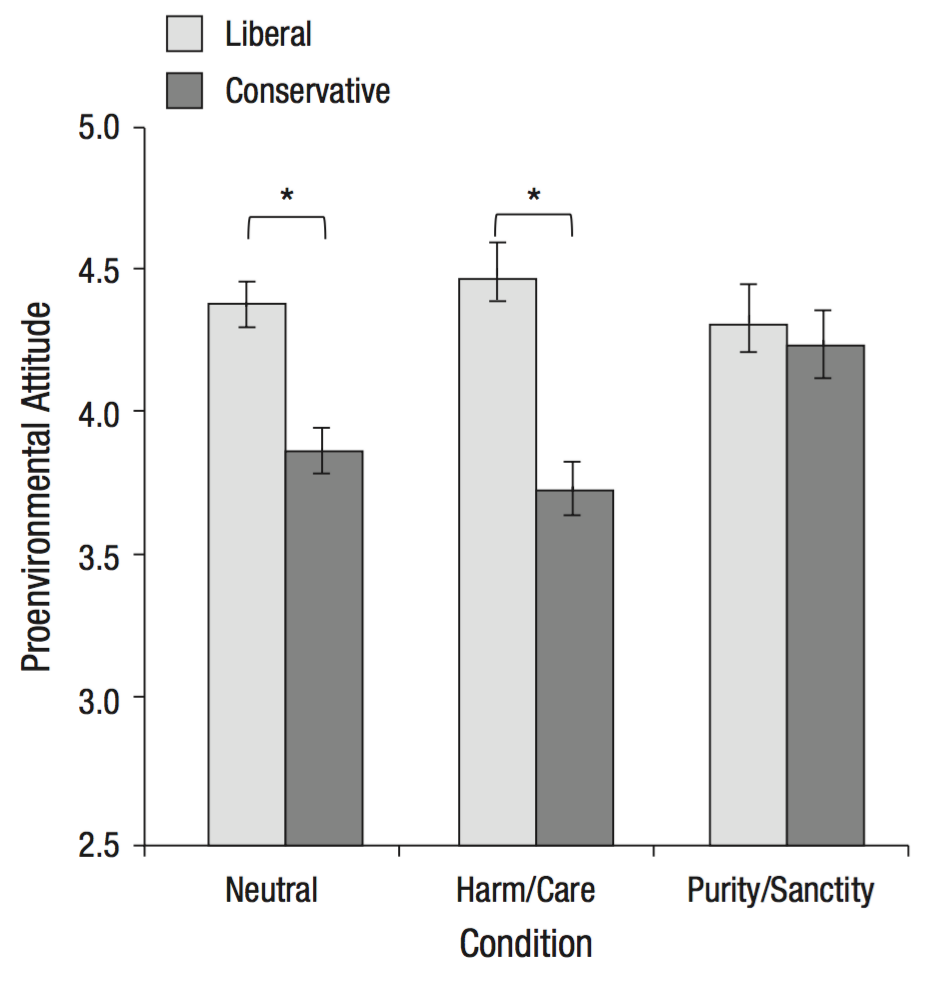
Feinberg & Willer, 2013 figure 2
a twist
‘We found parallel results regarding belief in global warming. Conservative participants reported greater belief in global warming when exposed to the purity/sanctity message than to the harm/care [...] or neutral message’ (Feinberg & Willer, 2013, p. 5).
5
‘we hypothesized that exposing conservatives to proenvironmental appeals based on moral concerns that uniquely resonate with them will lead them to view the environment in moral terms and be more supportive of proenvironmental efforts.’
Feinberg & Willer, 2013 p. 2
But can it change how people act?
Kidwell et al, 2013
‘You can make a difference by recyling because you know it’s the right thing to do. Your actions can help care for others and allow the greatest good for society. Because of people like you, we can reduce the harm to others and to the environement by recycling. You CAN make a difference’
‘You can join the fight by recycling with those like you in your community. Your actions can help us do our civic duty because recycling is the responsible thing to do in our society. Because of people like you, we can follow the advice of important leaders by recycling. You CAN join the fight!’
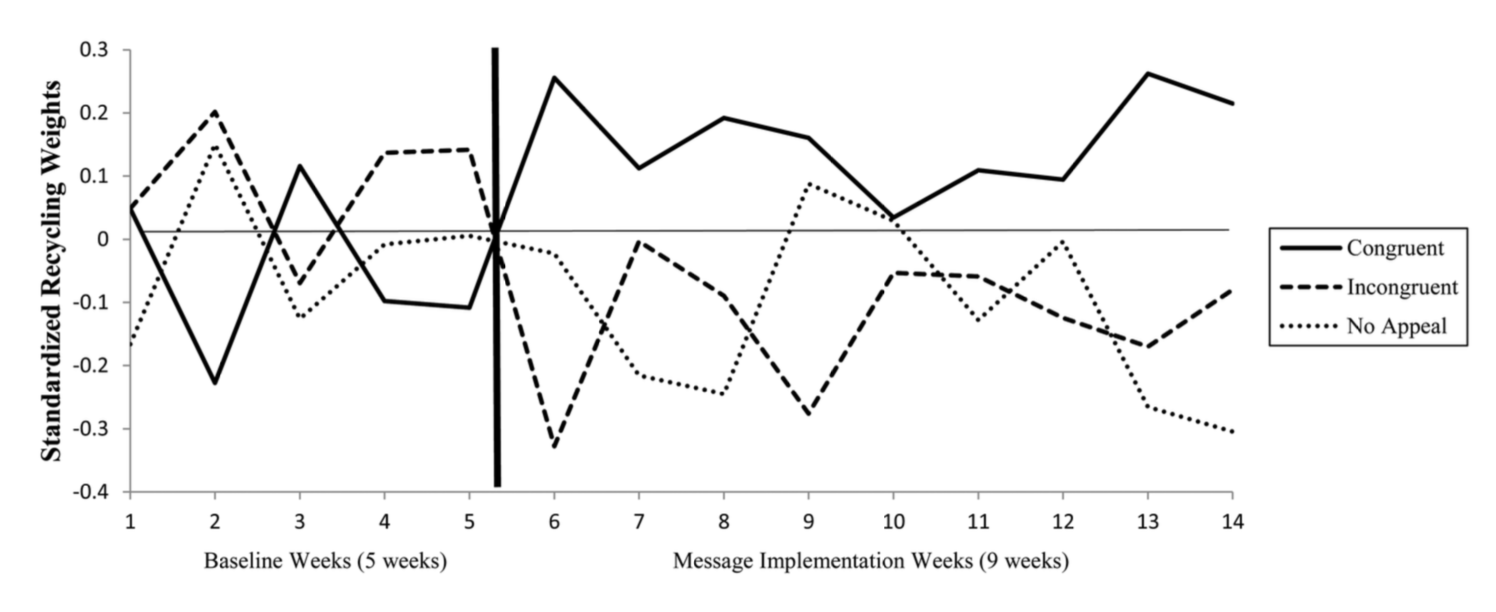
Kidwell et al, 2013 figure 4
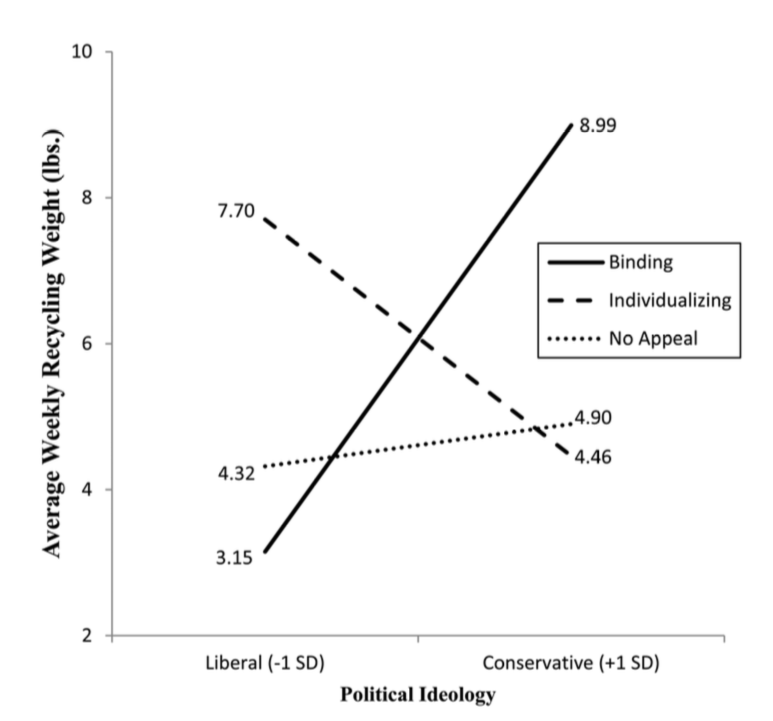
Kidwell et al, 2013 figure 3
5
‘we hypothesized that exposing conservatives to proenvironmental appeals based on moral concerns that uniquely resonate with them will lead them to view the environment in moral terms and be more supportive of proenvironmental efforts.’
Feinberg & Willer, 2013 p. 2
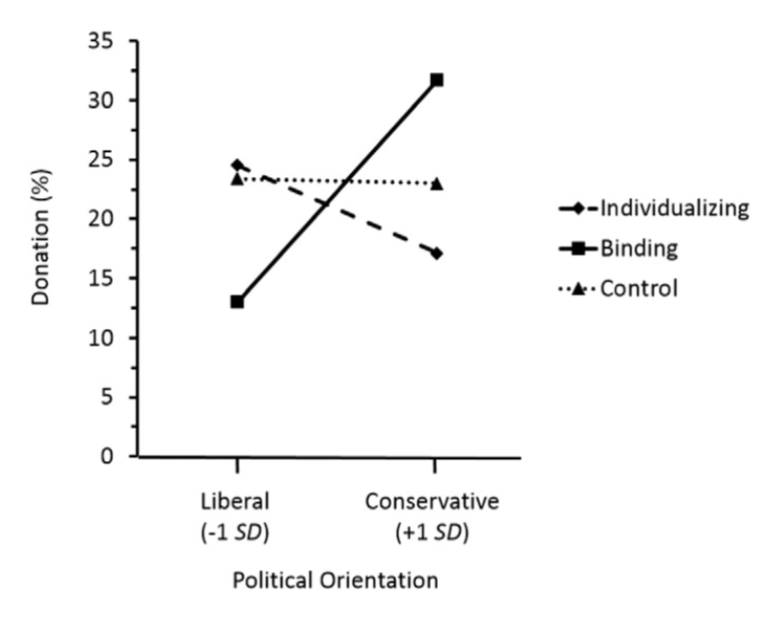
Wolsko et al. (2016, p. figure 5)
5
‘we hypothesized that exposing conservatives to proenvironmental appeals based on moral concerns that uniquely resonate with them will lead them to view the environment in moral terms and be more supportive of proenvironmental efforts.’
Feinberg & Willer, 2013 p. 2
Can liberals’ attitudes on typically conservative issues also be changed using a similar ethical framing strategy?
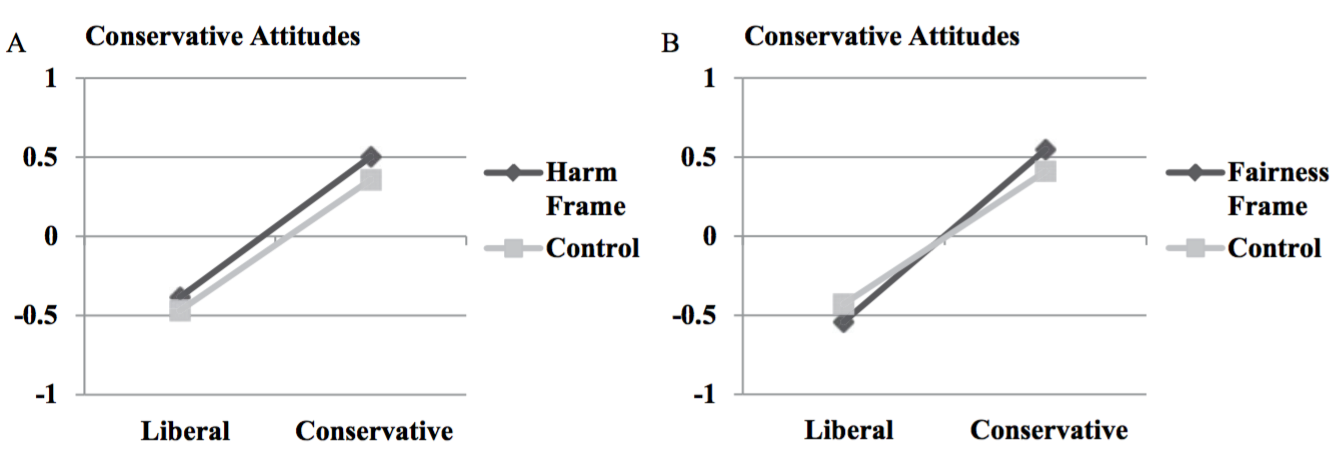
‘the spare sentence-long, stimuli used in the studies’ (Feinberg & Willer, p. 1667)
Day et al, 2014 figure 1A-B
Can liberals’ attitudes on typically conservative issues also be changed using a similar ethical framing strategy?
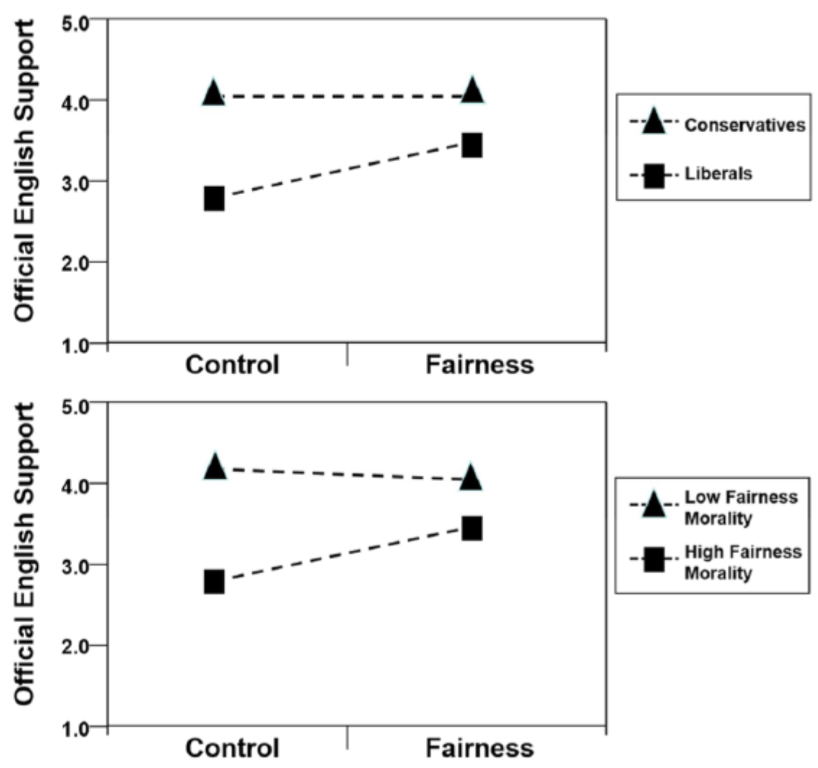
Feinberg & Willer, 2015 figure 6 (on Study 6)
Can liberals’ attitudes also be changed using a similar ethical framing strategy?
Day et al, 2014 : no evidence of persuasion for liberals (but for conservatives)
Feinberg & Willer, 2015 : yes
5
‘we hypothesized that exposing conservatives to proenvironmental appeals based on moral concerns that uniquely resonate with them will lead them to view the environment in moral terms and be more supportive of proenvironmental efforts.’
Feinberg & Willer, 2013 p. 2
Aside: If moral reframing is effective, why isn’t it used more?

People is bad (unable or unwilling) at shifting moral perspectives.
Feinberg & Willer, 2015 Table 1
Why are people bad at moral reframing?
Without recognizing that one’s political rivals possess different morals, and without a clear understanding of what those different morals are, using moral reframing becomes impossible’ (Feinberg & Willer, 2019, p. 7).
People are less tolerant of differences in moral than in nonmoral attitudes (Skitka et al., 2005).
5
‘we hypothesized that exposing conservatives to proenvironmental appeals based on moral concerns that uniquely resonate with them will lead them to view the environment in moral terms and be more supportive of proenvironmental efforts.’
Feinberg & Willer, 2013 p. 2